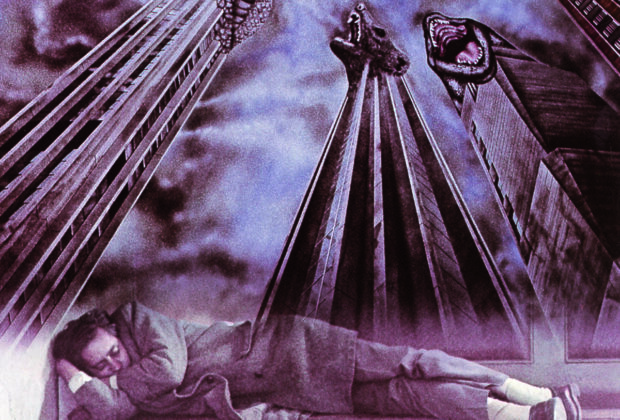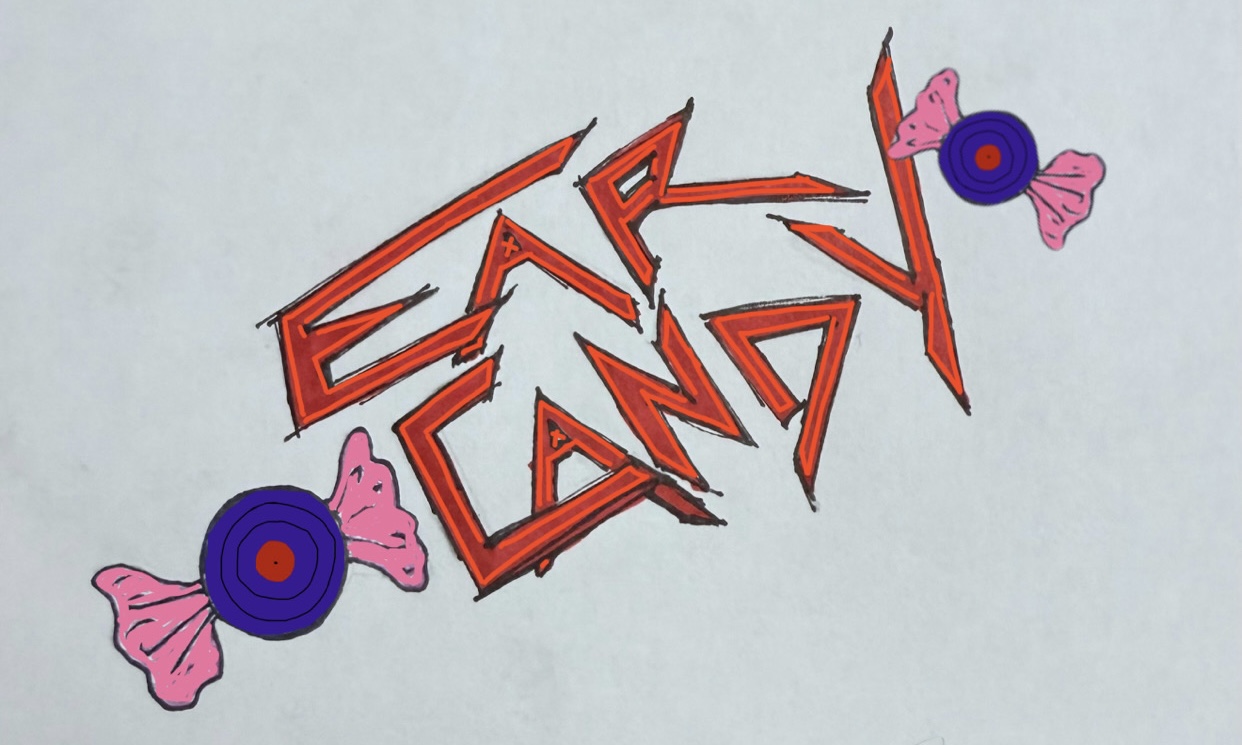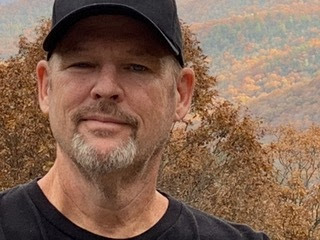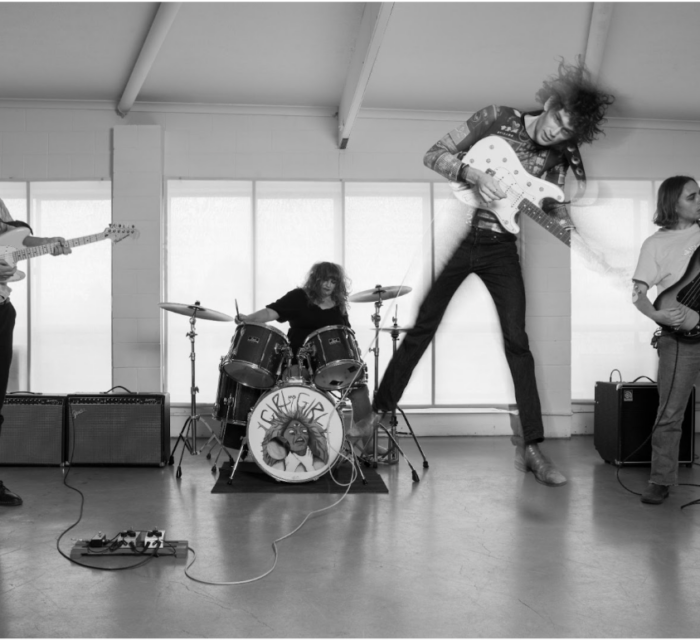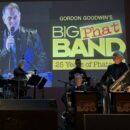Steely Dan was inducted into the Songwriters Hall of Fame as part of its 2024 inductees with Donald Fagen and Walter Becker joining R.E.M. and Timbaland.
The ceremony happened last June in New York. Walter Becker passed away in September 2017.
Steely Dan’s darkly cynical and musically intricate fifth album, 1976’s The Royal Scam, with such fan favorites as “Kid Charlemagne,” “The Fez,” “The Caves of Altamira,” and the biting title track, will return to vinyl for the first time in more than 40 years on June 6th via Geffen/UMe, concluding the extensive reissue program of the band’s classic ABC and MCA Records catalog that began in November 2022 with the Dan’s legendary debut LP, Can’t Buy A Thrill.
An announcement from the UME record label touts the series.
“Personally overseen by founding member Donald Fagen, returns the group’s first seven records to vinyl, most of which haven’t been available since their original release.
“The Royal Scam has been meticulously remastered by Bernie Grundman from the original analog tapes for release as a limited edition premium 45 RPM version on Ultra High-Quality Vinyl (UHQR) from Analogue Productions, the audiophile in-house reissue label of Acoustic Sounds. Analogue Productions is also releasing this series of titles on Super Audio CD (SACD).
“Released in 1976, The Royal Scam marked a pivotal moment in Steely Dan’s evolution toward studio perfectionism, delivering a darker, more cynical tone wrapped in complex jazz-rock arrangements. This album features some of the band’s sharpest songwriting and introduces drummer Bernard Purdie to the fold—his first appearance on a Steely Dan record—bringing his signature groove to tracks like “Kid Charlemagne” and “Green Earrings.” Guitarist Larry Carlton delivers searing solos throughout the album, particularly on “Don’t Take Me Alive,” while Dean Parks adds talk box flair to the reggae-influenced “Haitian Divorce.” The album also includes standout cuts like the funky, offbeat “The Fez” and the epic title track, “The Royal Scam,” a scathing portrait of shattered American dreams. With contributions from bassist Chuck Rainey, keyboardist Paul Griffin, and the soaring background vocals of Michael McDonald, The Royal Scam combines biting social commentary with masterful musicianship, making it a cult favorite and a testament to Steely Dan’s uncompromising artistic vision.”
The Royal Scam was ranked as Steely Dan’s second-best album by Stereogum, declaring it “their fiercest, funkiest record in their entire catalog, a classic that transitioned them from the uneasy company of the yacht-rock smooth to a mean unit that grooved like Stevie for pessimists.”
One late night in the early summer of 1977, when I was an occasional co-host of a radio program Ca. with deejay, music writer/critic Richard Cromelin, then with The Los Angeles Times, we actually debuted two Steely Dan’s Aja tracks over the airwaves.
A request was made to a publicist at ABC Records for a Steely Dan phone interview. Then, the station engineer Captain Midnight called, "They are both coming in with some jazz albums."
Steely Dan’s keyboardist/vocalist Donald Fagen, and bassist/guitarist Walter Becker, drove over from their Malibu pads and chatted for a couple of hours. They brought their acetate test pressing of Aja.
The duo spun “Black Cow” and “Deacon Blues” and some vintage jazz library selections during the world premiere of Aja.
Portions of our KPFK-FM radio show interview were published in the now defunct Phonograph Record Magazine.
On the KPFK-FM interview, we asked Becker and Fagen about touring or live shows.
“We’re not the least concerned about touring,” stressed Fagen. “We’ve never been that highly motivated to go out on the road. We enjoy performing but I’m not sure it’s worth the inconvenience for a frail person such as me. The tour problems can be overcome by routing and good planning. We don’t write when we are on the road. We have a lot of things to do and say and touring detracts from that.
‘We try to communicate as best we can, the most coherent, articulate statements that we can make. If it didn’t interfere with our activities or be such a pain in the ass, we’d go out on the road more. I’ve always regretted that it’s hard to maintain the quality of your music presentation in the circumstances that you find yourself in. There are a lot of terrible places where music is presented. Also, certain groups go out on the road so much that the band members get sick.
“We try to avoid gymnasiums. You’ll never see us at the [Inglewood Forum]. We don’t make any money on tours. We play in places that accommodate a limited number of people. Beyond that you can’t be assured the sound is occurring. Our expenses are usually equal to the profits. They tour, out of obligation,” laughed Donald.
“I don’t want to meet the audience. You have a more intimate relationship with someone who’s sitting home alone listening to your records. Playing live isn’t that personal. When we played,” Becker explained in retrospect, “it was as direct as possible. No-one was sitting more than three miles away. The trend for rock and roll bands now is to play the biggest halls around. Also, I’ve noticed that bands who stay on the road for an extended time or most of their career, the quality of their show often suffers from the lack of new material, Then the quality of the records is even worse.
“The quality of rock music presented is appalling. Neither Donald or I go to rock and roll shows. There’s not much to see.”
The duo recalled their most disastrous show.
“Our most disastrous show was somewhere in North Carolina,” underlined Becker. “Remember the show you wanted to go home after, when the truck arrived 2 hours late?”
“No,” countered Fagen, “but I remember the one where I plunged a speaker screw about three inches into my skull getting onto the stage and bled through the set. It did give a sort of grand guignol effect.”
“They thought it was part of the show,” Becker laughed. “And there was a show in Philadelphia once where a former lead singer of ours did sing an entire set a half-tone flat. And as if this weren't enough, he did see fit to split his pants.”
We inquired about the Becker and Fagen about their songwriting process.
“Donald and I write together,” offered Walter. “The music is written before the words are added. It’s like painting by numbers; we try and fill
“We were the only people at Bard College who weren’t rich,” Walter volunteered. “It took me a long time to figure out why everyone there had a Porsche but me. In fact, I always wondered why everyone had cigarettes but me. It was a very expensive school on the East coast and everyone had a lot of money. I was on a scholarship and Donald bankrupted his father.”
Earlier this century I had a telephone interview with Walter Becker and asked about Steely Dan’s legacy.
BECKER: We were probably successful in what we were trying to do in the ’70s at projecting a kind musical persona that was not particularly you know, tied to one or two or five individuals and that was rather an outgrowth of our writing and recording style. And know –as you say—there is this bit of curiosity that is out there.
Q: Have the songs become even more rewarding because they now stood up to the test of time?
BECKER: It’s funny, but that kind of thing probably happens more for listeners than for us playing them. We selected new songs we had never played before. And of the songs we had done years ago, we tried to diddle with them a little bit so that we’d feel fresh to play them and when we’re actually doing it that’s probably not so much the case for us than for people in the audience.
In our collaboration, Donald provided a lot of the harmonic direction and overall tonal framework, and his ability to develop great chord sequences, striking modulations, and so on, became an essential ingredient in our writing style. When you’re collaborating, you often need to persuade your writing partner that an idea is interesting enough or strong enough to work with, and sometimes this is difficult or impossible to be done.
Q: Since I’ve followed Steely Dan since inception and even when you were staff writers, did you ever even think both you and Donald could survive and flourish as band leaders in the record business? Brill Building to 10,000-15,000 seat venues with a performing group playing original material?
BECKER: To answer your question in a larger framework, I think when Donald and I started out we were arrogant enough to think we would be successful, in spite of the fact of what we were doing was as far off the beaten path as it was. And so, we kind of had enough confidence in what we were doing to keep at it long enough until we prevailed, so to speak. Certainly, it would be hard to imagine that we are still doing this and events have taken the shape that they have, you know, so many years later, I mean, quite surprising. Obviously for Donald and myself you know, the primary thing, the focus all those years was records and radio.
(Harvey Kubernik is the author of 20 books, including 2009’s Canyon Of Dreams: The Magic And The Music Of Laurel Canyon, 2014’s Turn Up The Radio! Rock, Pop and Roll In Los Angeles 1956-1972, 2015's Every Body Knows: Leonard Cohen, 2016's Heart of Gold Neil Young and 2017's 1967: A Complete Rock Music History of the Summer of Love. Sterling/Barnes and Noble in 2018 published Harvey and Kenneth Kubernik’s The Story Of The Band: From Big Pink To The Last Waltz. In 2021 the duo wrote Jimi Hendrix: Voodoo Child for Sterling/Barnes and Noble. Otherworld Cottage Industries in 2020 published Harvey’s Docs That Rock, Music That Matters. His Screen Gems:(Pop Music Documentaries and Rock ‘n’ Roll TV Scenes) is scheduled for 2025 publication. Harvey wrote the liner notes to CD re-releases of Carole King’s Tapestry, The Essential Carole King, Allen Ginsberg’s Kaddish, Elvis Presley The ’68 Comeback Special, The Ramones’ End of the Century and Big Brother & the Holding Company Captured Live at The Monterey International Pop Festival. During 2006 Kubernik spoke at the special hearings by The Library of Congress in Hollywood, California, discussing archiving practices and audiotape preservation. In 2017 he appeared at the Rock and Roll Hall of Fame in Cleveland, Ohio, in their Distinguished Speakers Series. Amidst 2023, Harvey spoke at The Grammy Museum in Los Angeles discussing The Last Waltz music documentary. The New York City Department of Education is developing the social studies textbook Hidden Voices: Jewish Americans in United States History. Kubernik’s 1976 profile/interview with music promoter Bill Graham on the Best Classic Bands website “Bill Graham Interview on the Rock ’n’ Roll Revolution,” 1976, Best Classic Bands is included.)

